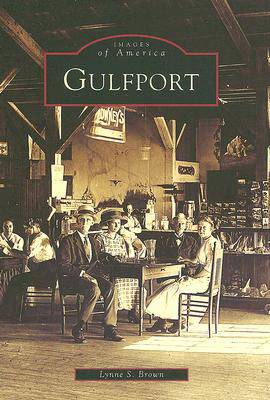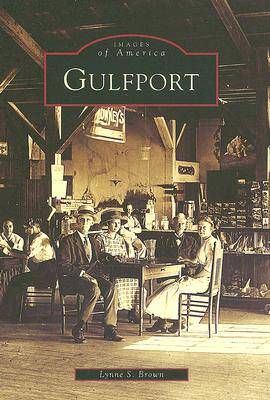
- Afhalen na 1 uur in een winkel met voorraad
- Gratis thuislevering in België vanaf € 30
- Ruim aanbod met 7 miljoen producten
- Afhalen na 1 uur in een winkel met voorraad
- Gratis thuislevering in België vanaf € 30
- Ruim aanbod met 7 miljoen producten
Zoeken
Omschrijving
In today's Florida of strip malls and mega attractions, there is little perception of the state as part of the American frontier, but the hardy folks who settled Gulfport were truly pioneers. Moving away from lives disturbed or destroyed by the Civil War and its aftermath, these early families made homes on an isolated bluff surrounded by tidal flats and bayous, filled with virgin pine and palmetto scrub. From these modest beginnings, a small but thriving fishing village emerged.
As the years passed and the Florida boom took hold, Gulfport began to know a new kind of prosperity: tourism. Fancy hotels, shops, and restaurants were built and entertained a steady flow of visitors. A popular winter destination for wealthy Northerners following the Depression era, Gulfport became an interesting study in contrasts. Vacationing gentlemen fished on piers alongside the rugged local seamen; well-dressed tourists played bridge on manicured lawns across the street from rowdy taverns. The middle of the century saw rapid residential expansion as returning servicemen needed homes for their young families and retirees flocked to the area for its mild climate and economical living.
As the years passed and the Florida boom took hold, Gulfport began to know a new kind of prosperity: tourism. Fancy hotels, shops, and restaurants were built and entertained a steady flow of visitors. A popular winter destination for wealthy Northerners following the Depression era, Gulfport became an interesting study in contrasts. Vacationing gentlemen fished on piers alongside the rugged local seamen; well-dressed tourists played bridge on manicured lawns across the street from rowdy taverns. The middle of the century saw rapid residential expansion as returning servicemen needed homes for their young families and retirees flocked to the area for its mild climate and economical living.
Specificaties
Betrokkenen
- Auteur(s):
- Uitgeverij:
Inhoud
- Aantal bladzijden:
- 128
- Taal:
- Engels
- Reeks:
Eigenschappen
- Productcode (EAN):
- 9780738502151
- Verschijningsdatum:
- 15/09/1999
- Uitvoering:
- Paperback
- Formaat:
- Trade paperback (VS)
- Afmetingen:
- 160 mm x 236 mm
- Gewicht:
- 317 g

Alleen bij Standaard Boekhandel
+ 69 punten op je klantenkaart van Standaard Boekhandel
Beoordelingen
We publiceren alleen reviews die voldoen aan de voorwaarden voor reviews. Bekijk onze voorwaarden voor reviews.







